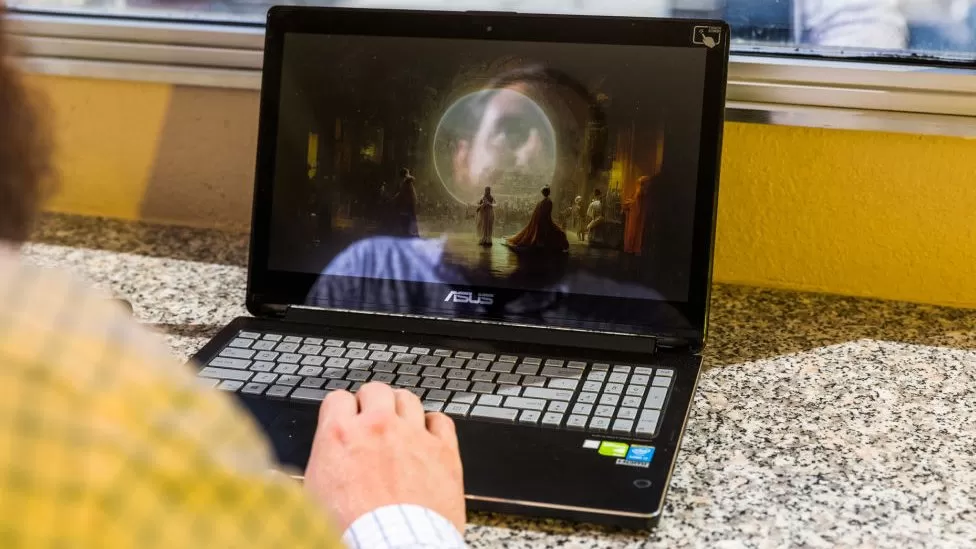"Art is dead Dude" - the rise of the AI artists stirs debate

Collected Image
Revolutions in art are nothing new, but this one, some think, may be terminal. "Art is dead Dude", Jason M Allen told the New York Times. Mr Allen is the winner of the Colorado State Art Fair's competition in the category of "emerging digital artists".
His winning entry "Théâtre D'opéra Spatial" was made using Mid journey, an artificial intelligence system that enables images to be created simply by inputting a few texts prompts - for example, "an astronaut riding a horse".
Many artists were furious, but Mr Allen was unmoved: "It's over. A.I. won. Humans lost", he told the paper. Mr Allen earned just $300 (£262) from the contest, but the news struck a tender nerve.
Some artists were already fearful that a new breed of AI image generator could take their jobs, and take a free ride on the years spent learning their craft. "This thing wants our jobs, it's actively anti-artist", wrote California-based movie and game concept artist RJ Palmer in a Tweet liked more than 25,000 times.
In Twitter posts he highlighted how well the output of AI systems could imitate living artists. In one case he examined, the AI even attempted to reproduce artists' signatures. The output of these AI systems is impressive, but they are built upon the output of flesh-and-blood creators - their AIs are trained on millions of human-made images.
Stable Diffusion, a recently launched open-source AI image generator, learns from a compressed file of "100,000 gigabytes of images" scraped from the internet, its founder Emad Mostaque tells me. Mr Mostaque, a computer scientist with a background in tech and finance, sees the Stable Diffusion as a "generative search engine".
Whereas Google image searches show you pictures that already exist, Stable Diffusion shows you anything you can imagine. "This is a Star Trek Holodeck moment" he says.
His winning entry "Théâtre D'opéra Spatial" was made using Mid journey, an artificial intelligence system that enables images to be created simply by inputting a few texts prompts - for example, "an astronaut riding a horse".
Many artists were furious, but Mr Allen was unmoved: "It's over. A.I. won. Humans lost", he told the paper. Mr Allen earned just $300 (£262) from the contest, but the news struck a tender nerve.
Some artists were already fearful that a new breed of AI image generator could take their jobs, and take a free ride on the years spent learning their craft. "This thing wants our jobs, it's actively anti-artist", wrote California-based movie and game concept artist RJ Palmer in a Tweet liked more than 25,000 times.
In Twitter posts he highlighted how well the output of AI systems could imitate living artists. In one case he examined, the AI even attempted to reproduce artists' signatures. The output of these AI systems is impressive, but they are built upon the output of flesh-and-blood creators - their AIs are trained on millions of human-made images.
Stable Diffusion, a recently launched open-source AI image generator, learns from a compressed file of "100,000 gigabytes of images" scraped from the internet, its founder Emad Mostaque tells me. Mr Mostaque, a computer scientist with a background in tech and finance, sees the Stable Diffusion as a "generative search engine".
Whereas Google image searches show you pictures that already exist, Stable Diffusion shows you anything you can imagine. "This is a Star Trek Holodeck moment" he says.
Source: https://www.bbc.com
Tags :
Previous Story
- 'No better time than now' for GCC to...
- Hand-woven Japanese silk fabric artisans turn attention to...
- Social media chiefs testify before Senate on data...
- Rise in global energy and food prices exacerbated...
- Gautam Adani overtakes Jeff Bezos as world's second-richest...
- Auto parts manufacturers ask govt to increase import...
- The Best Shower Water Filters, According to Experts
- Disney Cruise Line unveils new 'Aladdin'-inspired mega-ship 'Disney...